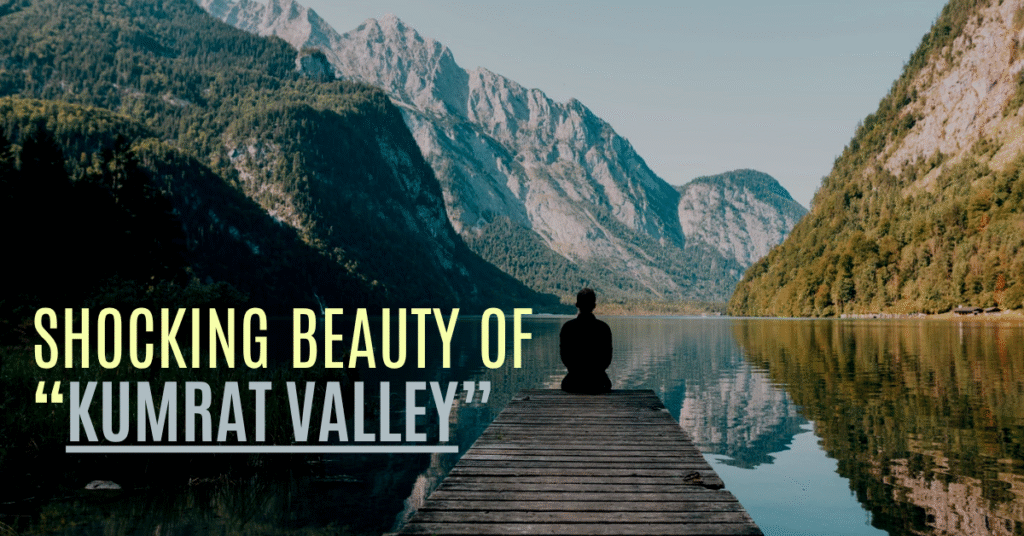Imagine a place where snow-peaked mountains guard lush green meadows, crystal-clear rivers, and clouds float so low you could almost touch them.
Welcome to Kumrat Valley, one of Pakistan’s most beautiful yet underrated travel destinations. Tucked away in the Upper Dir District of Khyber Pakhtunkhwa, Kumrat is not just a place—it’s a feeling.
While Murree and Naran get their fair share of attention, Kumrat remains untouched compared to Murree and Naran, unspoiled and utterly magical, like something straight out of a fantasy novel.
Whether you’re an adventurer, a peace-seeker, a photographer, or just someone who’s tired of the urban jungle—Kumrat Valley is a sanctuary your soul has been searching for.
In this article, we’ll explore the best places to visit in Kumrat Valley, unveil the ideal time to travel, and offer you a virtual tour so compelling that you’ll be itching to pack your bags by the end.
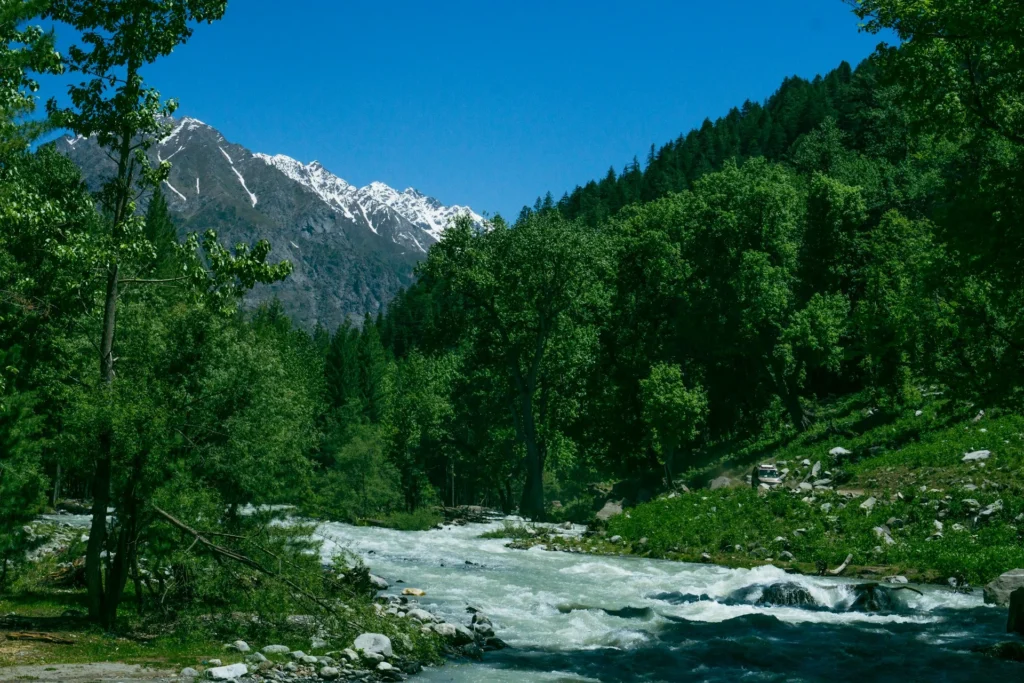
Why Visit Kumrat Valley?
Kumrat is an alpine valley of the Dir Kohistan region in the Upper Dir District, Khyber Pakhtunkhwa province of Pakistan. It is among the most popular tourist spots in the Malakand Division.
Every summer season, thousands of tourists from different areas of Pakistan and abroad visit Kumrat Valley for its greenery and cool weather. During summer vacations, it is one of the best places to visit and enjoy with your loved ones. It can only be accessed via four-wheel vehicles, as the road leading to it is unmetalled.
Before we dive into the specifics, let’s understand why Kumrat is a must-see:
- Unmatched natural beauty – Towering pine forests, meadows, and turquoise streams.
- Peace and solitude – Peaceful Place.
- Raw adventure – A perfect escape for hikers, campers, and off-roaders
- Hospitality – Warmth and sincerity from the locals of Dir (District).
Now, let’s discover the top spots that make Kumrat a dreamland.
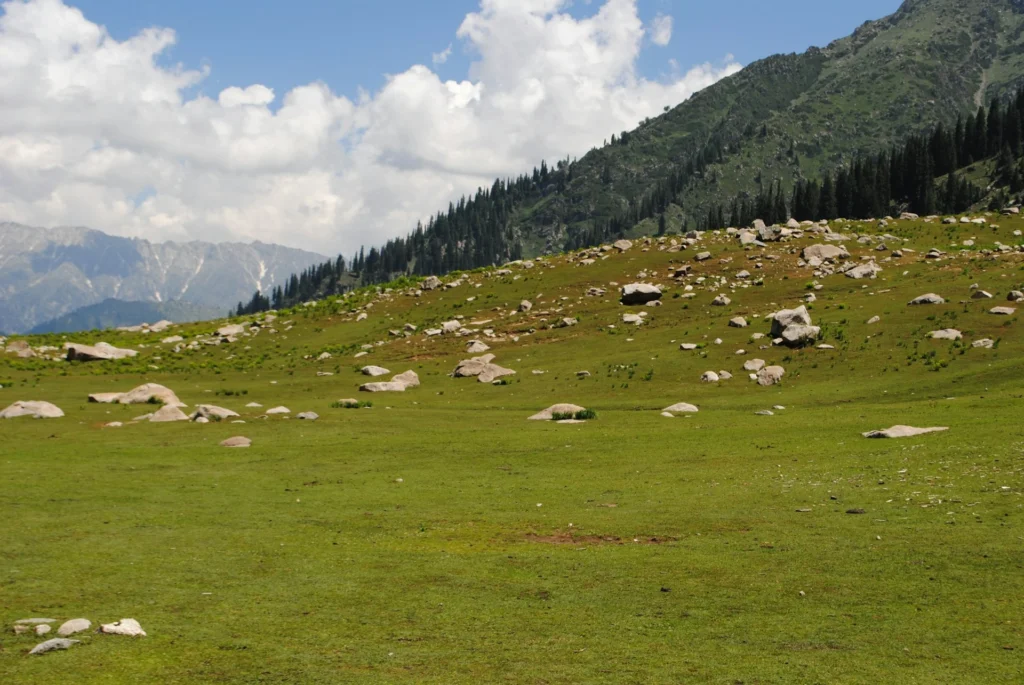
Jahaz Banda – The Floating Meadow
If Kumrat is a treasure, then Jahaz Banda is its shining jewel. Located at an altitude of 3,100 m above sea level, this alpine meadow is surrounded by snow-capped mountains and thick pine forests. The name “Jahaz Banda” translates to “Ship Meadow,” because from afar, it looks like a ship sailing on green waves.
Why You Should Visit:
- Sweeping views of Mankial Peaks
- Perfect for trekking and overnight camping
- Wildflowers in summer paint the entire valley in colors.
- Jahaz Banda is a gateway to multiple tourist destinations for a one-day trip.
- Visitors can enjoy boating.
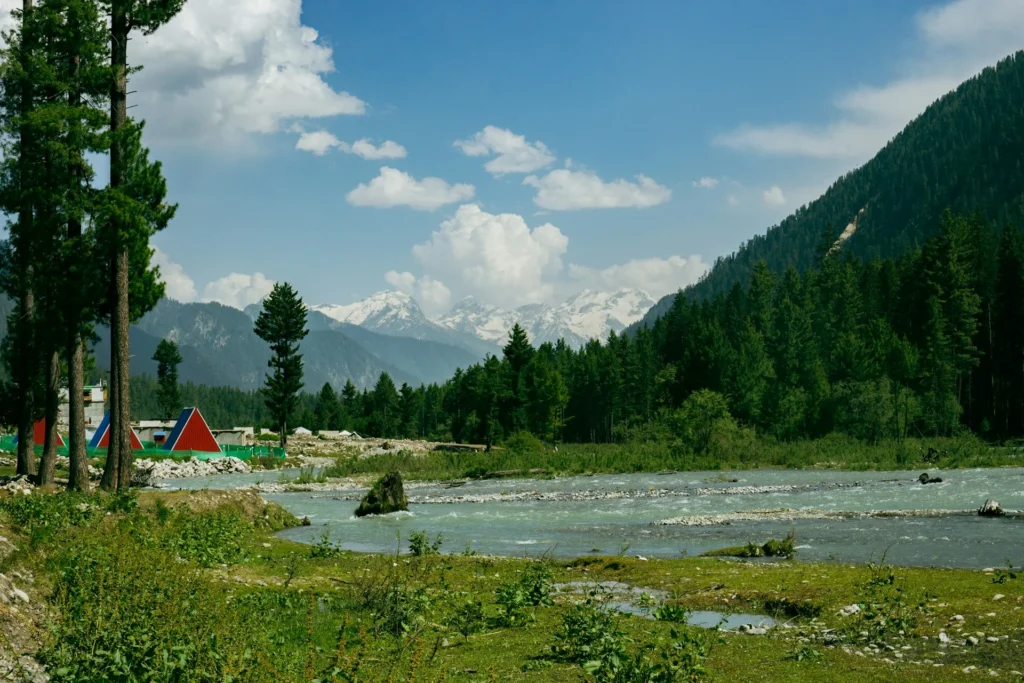
Panjkora River – The Valley’s Lifeline
Flowing gracefully through the valley, the Panjkora River is a tourist attraction in Kumrat Valley. With crystal-clear, icy-cold water, it offers both peace and excitement.
Things to Do:
- Riverside picnics and fishing
- Ideal for camping by the water
- Some brave hearts even dip in during summer.
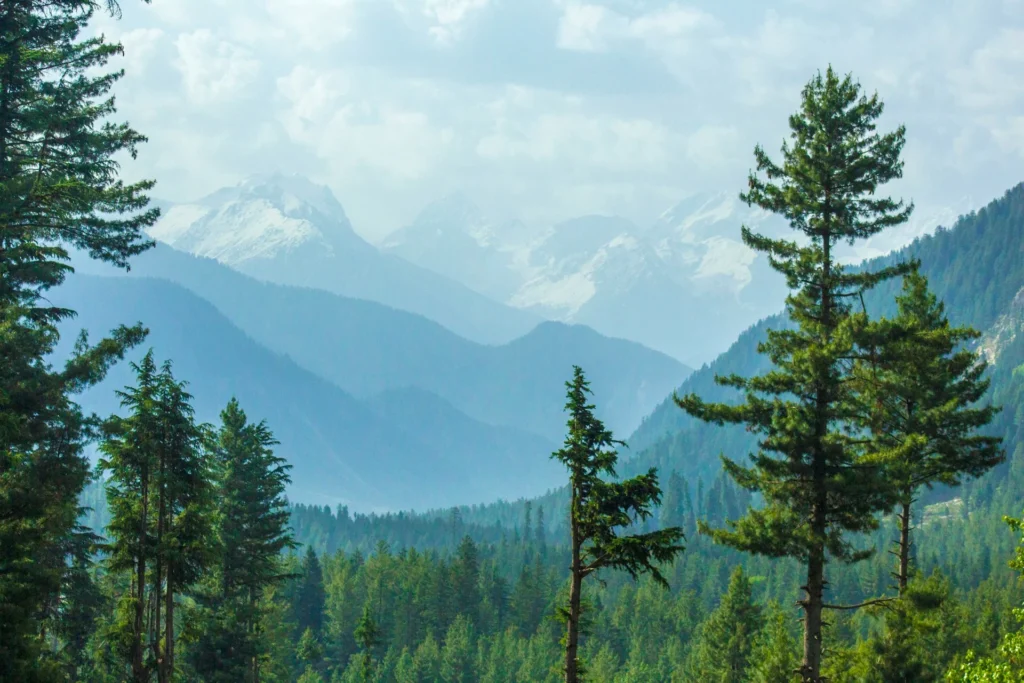
Kumrat Forest
If you’ve ever imagined walking through a fairy-tale forest, Kumrat Forest is it. Many tourists visit the Kumrat forest during the summer season. Towering Deodar trees in the Forest reach the sky, casting long shadows over mossy paths.
The sound of wind passing through the pines and the occasional chirp of birds adds to the magical vibe. The Kumrat Valley is best for couples as well as for single travelers.
Highlights:
- Walking trails and horse rides
- Peaceful retreats from the summer heat
- Great spot for nature photography and meditation
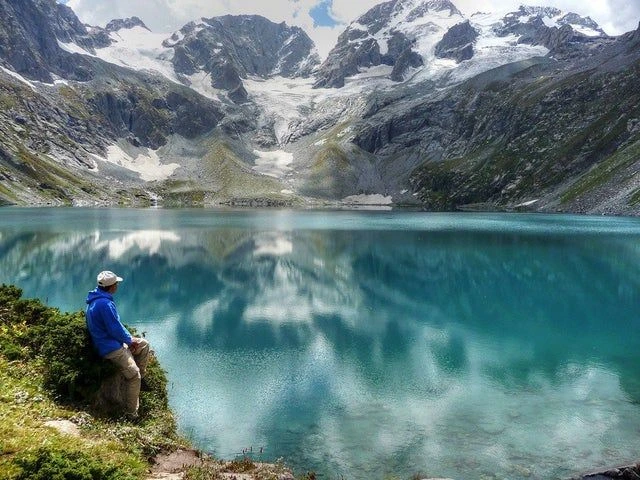
Katora Lake
In Kumrat Valley, the breathtaking Katora Lake lies high up in the mountains beyond Jahaz Banda. “Katora” means bowl in Urdu, and true to its name, the lake is bowl-shaped, holding glacier-fed blue water. Katora Lake is an alpine glacial lake in Kumrat Valley, which is one of the best places to visit in the Kumrat Valley. It takes almost 4 to 5 hours from Jahaz Banda to Katora Lake.
The Katora Lake offers incredible panoramic views of snow-covered peaks, and the serenity here is otherworldly. You’ll feel like you’ve stepped into a fantasy film. It is also a Must-camp spot for thrill-seekers.
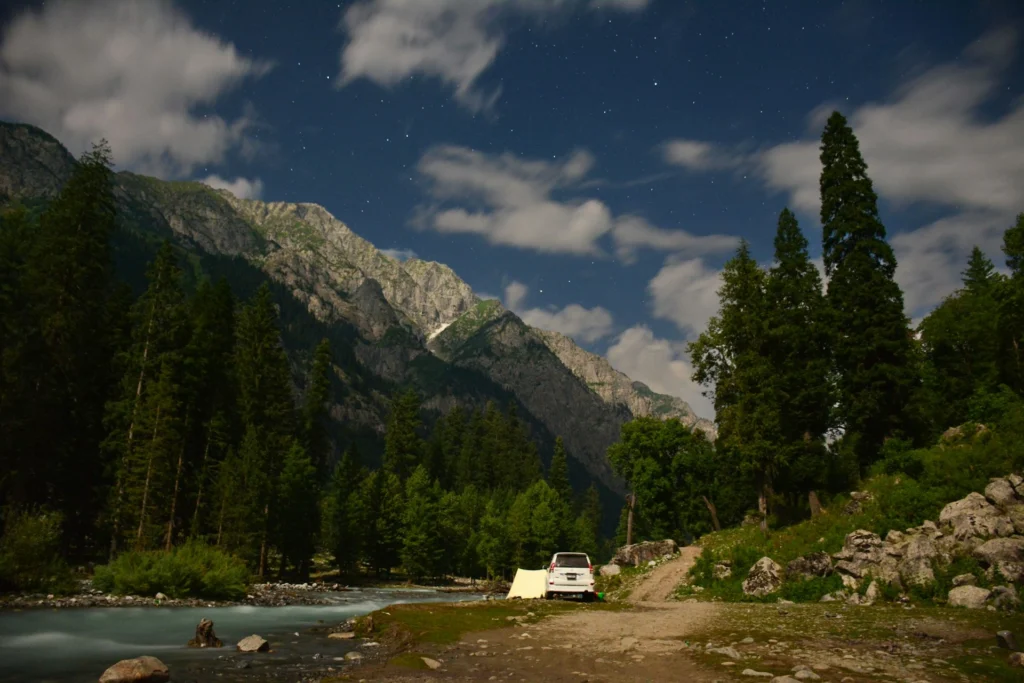
Kala Chashma – The Black Spring
Kala Chashma, or “Black Spring,” is one of Kumrat’s most unique natural wonders. It gets its name from the dark rocks and the pure, cold water that emerges from beneath them. Despite the name, the water is crystal clear and drinkable.
Kala Chashma is surrounded by dense forests and majestic mountains. The Kala Chashma waterfall, with its cascading waters, creates a mesmerizing sight that leaves visitors speechless. This amazing valley is ideal for trekking, camping, and exploring the untouched beauty of northern Pakistan.
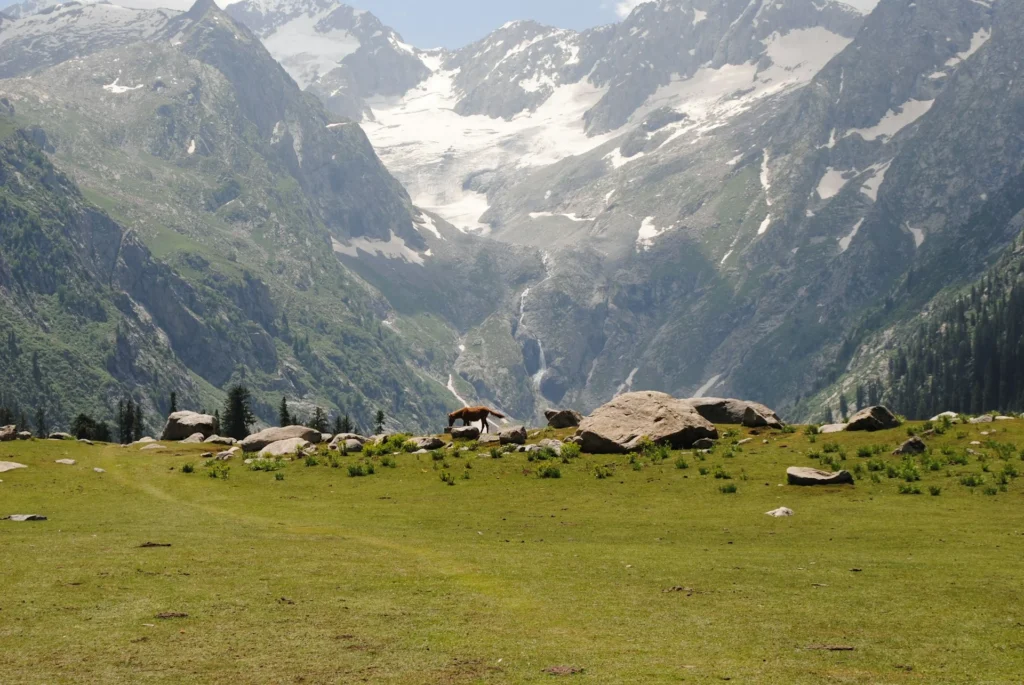
Dojanga – The Soulful Fork in the Road
Dojanga exists within the enchanting valley of Kumrat. It is like a lovely little valley in itself, though it is actually part of Kumrat Valley. Beyond the waterfall and the Kala Pani spring lies a place that resembles paradise—a heavenly sanctuary. Dojanga is a perfect base camp for exploring deeper into the valley or starting your trekking adventures.
Why Go?
- Calm surroundings
- Amazing for star-gazing at night
- Local tea shops with breathtaking views
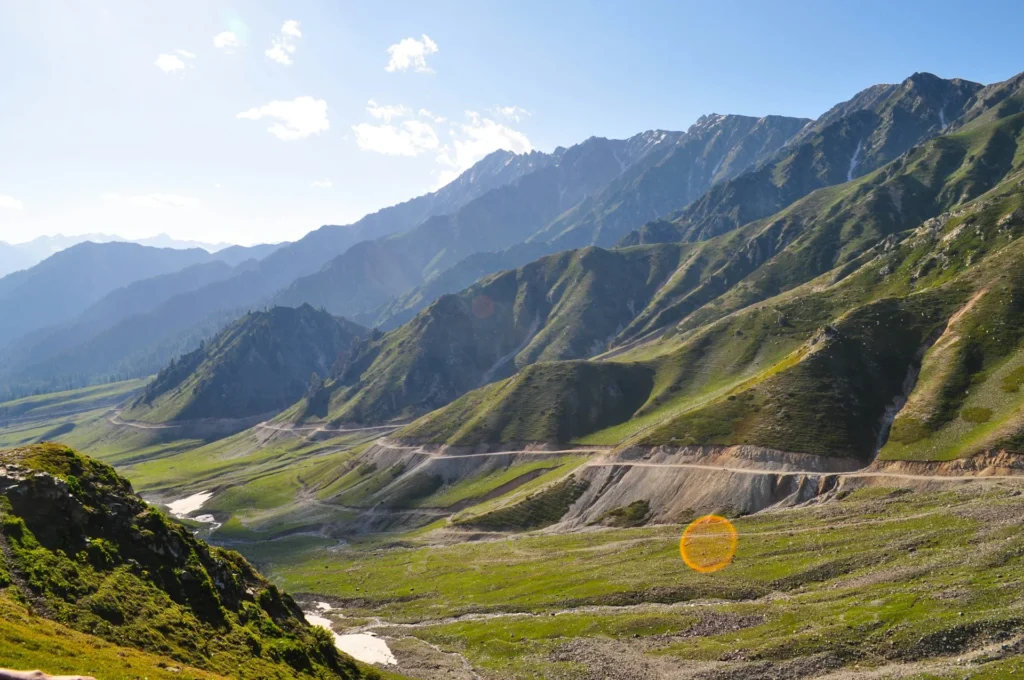
Badagoi Pass – Gateway to Swat
If you love off-roading and challenging treks, Badagoi Pass is a thrilling mountain pass that connects Kumrat Valley to the Swat Valley. It’s rugged, wild, and not for the faint-hearted. This high mountain pass is located at 3,523m above sea level. This pass offers 4×4 jeep adventures, breathtaking top-of-the-world views, and a chance to witness rare wildlife.
The Badgoi pass is an inspiring and very beautiful place that many people make a hike or camping trip to visit. Not only does it offer panoramic views of its natural beauty, but it also provides shelter for many unique animals, including the endangered snow leopard.
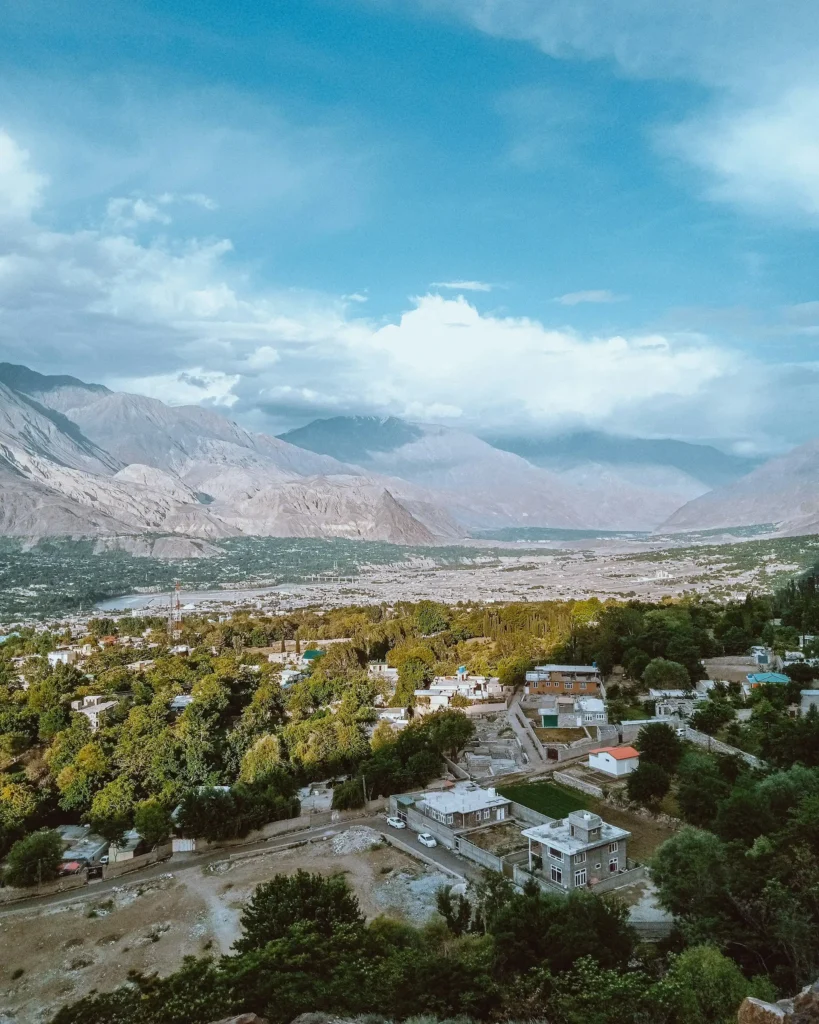
Thal Village – The Heartbeat of Kumrat
You’ll likely pass through Thal, a charming small town at the entrance of the Kumrat Valley. It serves as the gateway to all major attractions. Thal Village offers authentic Dir culture and local hospitality, local handicrafts and food stalls, and a great place to stock up before heading deeper. It’s my suggestion that you should not miss the local trout fish, freshly cooked and delicious!
Thal Village is a gateway to all places mentioned above.
Best Season to Visit Kumrat Valley
Summer (May to August) – Best Time to Visit
- Ideal for camping, trekking, and sightseeing
- Full bloom of flowers, greenery, and accessible trails
- Daytime temperatures are mild and pleasant
Autumn (September to October)
- Fewer crowds
- Beautiful fall foliage
- Nights get colder but still manageable
Winter (November to March)
- Heavy snowfall makes many areas inaccessible
- Not recommended for casual tourists
- Only visit if you’re into snow hiking and extreme adventure
Spring (April)
- Melting snow and blooming flowers
- Some roads may still be blocked
- Not ideal for trekking, but good for nature walks
Travel Tips for Kumrat Valley Visitors
- 4×4 vehicle recommended due to the rough terrain
- Carry cash, as there are no ATMs in the kumrat valley
- Limited electricity – bring power banks and solar chargers or read now [ Best Travel Gadgets ].
- Prepare for basic accommodation or bring camping gear
- Respect local culture and avoid littering – leave no trace!
Conclusion
Kumrat Valley is not like just another tourist destination. It’s a living, breathing poem written by nature. From misty meadows to glacial lakes, from pine-scented air to timeless silence, everything here has a story to tell.
Whether you’re sipping chai(tea) beside a gurgling stream or staring in awe at the snowy peaks, one thing is guaranteed: you won’t want to leave.
So the next time you’re looking for a break from the routine, skip the usual spots and choose a place that’s wild, wonderful, and waiting just for you.
Kumrat Valley—a slice of heaven that hasn’t gone viral yet. But maybe, after your visit, it will.
